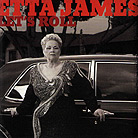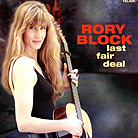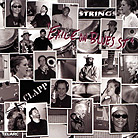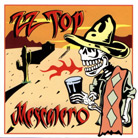November 2003
I thought there was a little too much rock in Ms. James’s last release, the Grammy-nominated Burnin’ Down the House, as well as too much compromise to audience expectations. On Let’s Roll James and her band jump into rock and roll with both feet and this time she delivers a small gem. The guitars roar, the kick drum thumps hard, and James shouts the tunes out. She doesn’t always have the growl of a young rock and roll singer, but she has an air of authority that young singers lack. The laughing "hey, hey, hey" that introduces "Stacked Deck," a 1951 Billy Wright tune, commands attention -- Etta James is going to tell you a story and she wants you to snap to. Let’s Roll pulls in some older songs, as well as new material from established songwriters. Delbert McClinton co-wrote two of the disc’s best songs, "Somebody to Love" and "Wayward Saints of Memphis." But this disc belongs to James’s longtime backup band, the Roots Band. They’re sharp, tight, and versatile. On "Somebody to Love" they’re sound as tough as the mid-'70s Stones, while on "Stacked Deck" they play blues as straight as any purist could want. Donto James, Etta’s son and the drummer in her band, was the recording engineer for the sessions, and the sound is detailed and clear. Ms. James has had a good run of discs on her current label, Private Music (Burnin’ Down the House is the only one I’ve heard that I didn’t like). She looks elegant and proud on the cover of Let’s Roll. She has every reason to be proud of this disc. Rory Block looks pretty glamorous on the cover of her current release, Last Fair Deal. Telarc, her new label after a 20-year association with Rounder Records, seems to be playing up her good looks, and if that helps her sell more discs, fine. She’s been making good records all along (she’s won four W.C. Handy Awards) and a brisk seller for her would be long overdue. Block’s open-tuned acoustic-guitar playing has a pure, warm tone (nicely caught on the recording) and she is an expert slide player in a variety of styles. She covers two Robert Johnson songs, "Last Fair Deal Gone Down" and "Traveling Riverside Blues," in a simple, uncluttered way that shows a deep understanding of Johnson’s music. At the same time, she avoids turning the tunes into stale museum pieces by bringing something personal and fresh to them. There are many things to like about Block, but what I enjoy most is her remarkable restraint as a singer. She sings with real emotion and doesn’t fall back on stock vocal tricks. Her guitar playing has the same integrity. Her intricate, absorbing technical skills never call attention to themselves -- she’s an unassuming virtuoso. Block calls Last Fair Deal "…a celebration of my beloved instrument and best friend, the guitar." She’s always played well, but there’s a natural ease to her performances here. She’s aided herself by writing several beautiful songs based on her strong blues and folk roots and by choosing unpredictable material to interpret. Exile on Blues St. is the third in Telarc’s blues series based on classic rock albums -- the others were The Blues White Album and Blues on Blonde on Blonde. I think it’s long past time to retire these multi-artist tribute or theme discs. Hal Wilner’s approach to them has been unique and one or two other collections have been musically successful, but they’re usually unfocused and they often feel thrown together. I almost always find myself running back to the original versions of tracks covered on them. Tommy Shannon and Chris Layton, the bassist and drummer for Double Trouble, play on every track on this disc and they have a clear understanding of what Exile On Main Street was about. Their playing is rock solid and economical throughout. Nearly everyone else seems to have either missed something essential about Exile or lacks the skills to recast the songs. The exceptions, Otis Taylor’s "Sweet Black Angel," Jeff Lang’s "Sweet Virginia," and Joe Lewis Walker’s "Shine A Light," are strongly felt interpretations that pull something new from the songs. Other cuts are off in small but important ways. Lucky Peterson’s version of "Ventilator Blues" is an exciting enough guitar rave up, but the original is slower, dirtier, and just plain meaner. Many tracks are hugely miscalculated. Tab Benoit takes "Shake Your Hips," three minutes of pure funk in both Slim Harpo’s original and in the Stones’ version, and turns it into six minutes of guitar excess. Andrea Re and Deborah Coleman offer lifeless performance of, respectively, "Tumbling Dice" and "Happy," but they may have been hindered by arrangements that get important things, such as the chord changes, wrong. The irony of Exile on Blues Sreet is that it takes a conservative, purist approach to music created by a band that had moved beyond purism to adapting the blues for its own purposes. Z.Z. Top has been playing something like the blues for a little more than 30 years now. The best of it -- "La Grange," "Jesus Just Left Chicago," or "Cheap Sunglasses" -- was pure fun that didn’t take itself seriously. Guitarist Billy Gibbons obviously liked the blues, but he wasn’t so reverential that he lost his sense of humor. Unfortunately, as songs like "Tube Snake Boogie" made clear, he could too easily descend into bad taste and sloppy guitar playing. Beginning with Eliminator (1983), Gibbons reduced the blues to a mind-numbing simplicity and wrote songs that enabled him to play guitar solos from a fixed position on the fingerboard. George Thorogood sounded elegant by comparison. Mescalero is the band’s 15th album and Gibbons plays some good solos on it. The title tune is actually a lot of fun and it has a great hook. There are a couple of ballads that come close to being pleasant and "Punk Ass Boyfriend" is easily the funniest song title I’ve heard this year. Should you buy it? If you’re a fan you will anyway, but the truth is you already own it. GO BACK TO: |
 Etta James - Let's Roll
Etta James - Let's Roll Rory Block - Last Fair Deal
Rory Block - Last Fair Deal Various - Exile on Blues Street
Various - Exile on Blues Street Z.Z. Top - Mescalaro
Z.Z. Top - Mescalaro "The blues
is my business," Etta James sings on a track from her new album, Let’s
Roll, "and business is good." Business is good for the blues these
days. Musicians like James tour extensively and play comfortable venues, such as the House
of Blues, and there seems to be a steady flow of new releases, from veterans as well as
recently established artists. For me, this success has been a mixed blessing. The blues
has become conflated with classic rock for middle-aged fans and, perhaps to court those
fans, young players like Tab Benoit and Johnny Lang have injected the sound and feel of
rock into their blues.
"The blues
is my business," Etta James sings on a track from her new album, Let’s
Roll, "and business is good." Business is good for the blues these
days. Musicians like James tour extensively and play comfortable venues, such as the House
of Blues, and there seems to be a steady flow of new releases, from veterans as well as
recently established artists. For me, this success has been a mixed blessing. The blues
has become conflated with classic rock for middle-aged fans and, perhaps to court those
fans, young players like Tab Benoit and Johnny Lang have injected the sound and feel of
rock into their blues.